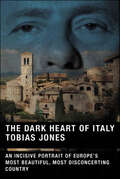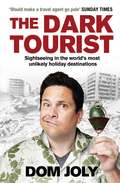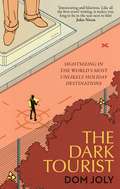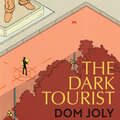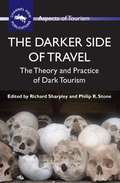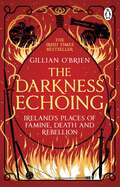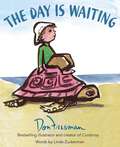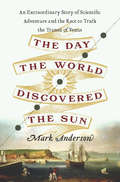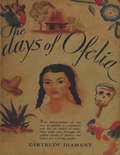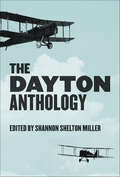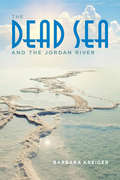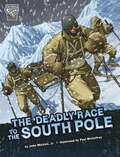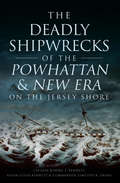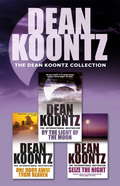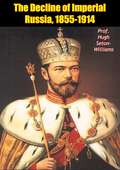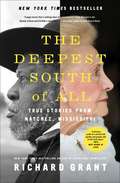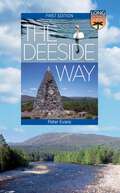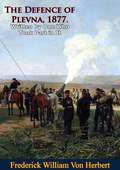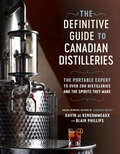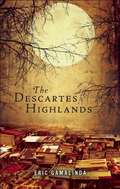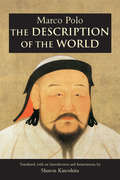- Table View
- List View
The Dark Heart of Italy: An Incisive Portrait of Europe's Most Beautiful, Most Disconcerting Country
by Tobias JonesIn 1999 Tobias Jones immigrated to Italy, expecting to discover the pastoral bliss described by centuries of foreign visitors. Instead, he found a very different country: one besieged by unfathomable terrorism and deep-seated paranoia. The Dark Heart of Italy is Jones's account of his four-year voyage across the Italian peninsula.Jones writes not just about Italy's art, climate, and cuisine but also about the much livelier and stranger sides of the Bel Paese: the language, soccer, Catholicism, cinema, television, and terrorism. Why, he wonders, does the parliament need a "slaughter commission"? Why do bombs still explode every time politics start getting serious? Why does everyone urge him to go home as soon as possible, saying that Italy is a "brothel"? Most of all, why does one man, Silvio Berlusconi--in the words of a famous song--appear to own everything from Padre Nostro (Our Father) to Cosa Nostra (the Mafia)?The Italy that emerges from Jones's travels is a country scarred by civil wars and "illustrious corpses"; a country that is proudly visual rather than verbal, based on aesthetics rather than ethics; a country where crime is hardly ever followed by punishment; a place of incredible illusionism, where it is impossible to distinguish fantasy from reality and fact from fiction.
The Dark Tourist
by Dom Joly'Dark tourism is the act of travel and visitation to sites, attractions and exhibitions which have real or recreated death, suffering or the seemingly macabre as a main theme' Ever since he can remember, Dom Joly has been fascinated by travel to odd places. In part this stems from a childhood spent in war-torn Lebanon, where instead of swapping marbles in the schoolyard, he had a shrapnel collection -- the schoolboy currency of Beirut. Dom's upbringing was interspersed with terrifying days and nights spent hunkered in the family basement under Syrian rocket attack or coming across a pile of severed heads from a sectarian execution in the pine forests near his home. These early experiences left Dom with a profound loathing for the sanitized experiences of the modern day travel industry and a taste for the darkest of places. And in this brilliantly odd and hilariously told travel memoir, Dom Joly sets out on a quest to visit those destinations from which the average tourist would, and should, run a mile. The more insalubrious the place, the more interesting is the journey and so we follow Dom as he skis in Iran on segregated slopes, picnics in the Syrian Desert with a trigger-happy government minder and fires rocket propelled grenades at live cows in Cambodia (he missed on purpose, he just couldn't do it). Funny and frightening in equal measure, this is a uniquely bizarre and compelling travelogue from one of the most fearless and innovative comedians around.
The Dark Tourist: Sightseeing in the world's most unlikely holiday destinations
by Dom JolyEver since he can remember, Dom Joly has been fascinated by travel to odd places. In part this stems from a childhood spent in war-torn Lebanon, where instead of swapping marbles in the schoolyard, he had a shrapnel collection -- the schoolboy currency of Beirut. Dom's upbringing was interspersed with terrifying days and nights spent hunkered in the family basement under Syrian rocket attack or coming across a pile of severed heads from a sectarian execution in the pine forests near his home.These early experiences left Dom with a profound loathing for the sanitized experiences of the modern day travel industry and a taste for the darkest of places. In this brilliantly odd and hilariously told travel memoir, Dom Joly sets out on a quest to visit those destinations from which the average tourist would, and should, run a mile. The more insalubrious the place, the more interesting is the journey and so we follow Dom as he skis in Iran on segregated slopes, spends a weekend in Chernobyl, tours the assassination sites of America and becomes one of the few Westerners to be granted entry into North Korea. Eventually Dom journeys back to his roots in Beirut only to discover he was at school with Osama Bin Laden.Funny and frightening in equal measure, this is a uniquely bizarre and compelling travelogue from one of the most fearless and innovative comedians around.
The Dark Tourist: Sightseeing in the world's most unlikely holiday destinations
by Dom JolyEver since he can remember, Dom Joly has been fascinated by travel to odd places. In part this stems from a childhood spent in war-torn Lebanon, where instead of swapping marbles in the schoolyard, he had a shrapnel collection -- the schoolboy currency of Beirut. Dom's upbringing was interspersed with terrifying days and nights spent hunkered in the family basement under Syrian rocket attack or coming across a pile of severed heads from a sectarian execution in the pine forests near his home.These early experiences left Dom with a profound loathing for the sanitized experiences of the modern day travel industry and a taste for the darkest of places. In this brilliantly odd and hilariously told travel memoir, Dom Joly sets out on a quest to visit those destinations from which the average tourist would, and should, run a mile. The more insalubrious the place, the more interesting is the journey and so we follow Dom as he skis in Iran on segregated slopes, spends a weekend in Chernobyl, tours the assassination sites of America and becomes one of the few Westerners to be granted entry into North Korea. Eventually Dom journeys back to his roots in Beirut only to discover he was at school with Osama Bin Laden.Funny and frightening in equal measure, this is a uniquely bizarre and compelling travelogue from one of the most fearless and innovative comedians around.
The Dark Tourist: Sightseeing in the world's most unlikely holiday destinations
by Dom JolyEver since he can remember, Dom Joly has been fascinated by travel to odd places. In part this stems from a childhood spent in war-torn Lebanon, where instead of swapping marbles in the schoolyard, he had a shrapnel collection -- the schoolboy currency of Beirut. Dom's upbringing was interspersed with terrifying days and nights spent hunkered in the family basement under Syrian rocket attack or coming across a pile of severed heads from a sectarian execution in the pine forests near his home.These early experiences left Dom with a profound loathing for the sanitized experiences of the modern day travel industry and a taste for the darkest of places. In this brilliantly odd and hilariously told travel memoir, Dom Joly sets out on a quest to visit those destinations from which the average tourist would, and should, run a mile. The more insalubrious the place, the more interesting is the journey and so we follow Dom as he skis in Iran on segregated slopes, spends a weekend in Chernobyl, tours the assassination sites of America and becomes one of the few Westerners to be granted entry into North Korea. Eventually Dom journeys back to his roots in Beirut only to discover he was at school with Osama Bin Laden.Funny and frightening in equal measure, this is a uniquely bizarre and compelling travelogue from one of the most fearless and innovative comedians around.
The Dark Tourist: Sightseeing in the world’s most unlikely holiday destinations
by Dom Joly'Dark tourism is the act of travel and visitation to sites, attractions and exhibitions which have real or recreated death, suffering or the seemingly macabre as a main theme'Ever since he can remember, Dom Joly has been fascinated by travel to odd places. In part this stems from a childhood spent in war-torn Lebanon, where instead of swapping marbles in the schoolyard, he had a shrapnel collection -- the schoolboy currency of Beirut. Dom's upbringing was interspersed with terrifying days and nights spent hunkered in the family basement under Syrian rocket attack or coming across a pile of severed heads from a sectarian execution in the pine forests near his home. These early experiences left Dom with a profound loathing for the sanitized experiences of the modern day travel industry and a taste for the darkest of places. And in this brilliantly odd and hilariously told travel memoir, Dom Joly sets out on a quest to visit those destinations from which the average tourist would, and should, run a mile. The more insalubrious the place, the more interesting is the journey and so we follow Dom as he skis in Iran on segregated slopes, picnics in the Syrian Desert with a trigger-happy government minder and fires rocket propelled grenades at live cows in Cambodia (he missed on purpose, he just couldn't do it). Funny and frightening in equal measure, this is a uniquely bizarre and compelling travelogue from one of the most fearless and innovative comedians around.
The Darker Side of Travel
by Richard Sharpley Philip R. StoneOver the last decade, the concept of dark tourism has attracted growing academic interest and media attention. Nevertheless, perspectives on and understanding of dark tourism remain varied and theoretically fragile whilst, to date, no single book has attempted to draw together the conceptual themes and debates surrounding dark tourism, to explore it within wider disciplinary contexts and to establish a more informed relationship between the theory and practice of dark tourism. This book meets the undoubted need for such a volume by providing a contemporary and comprehensive analysis of dark tourism.
The Darkness Echoing: Exploring Ireland’s Places of Famine, Death and Rebellion
by Dr Gillian O'BrienThe Irish Times Top 10 Bestseller!From war to revolution, famine to emigration, The Darkness Echoing travels around Ireland bringing its dark past to lifeIt's no secret that the Irish are obsessed with misery, suffering and death. And no wonder, for there is darkness everywhere you look: in cemeteries and castles, monuments and museums, stories and songs. In The Darkness Echoing, Gillian O'Brien tours Ireland's most deliciously dark heritage sites, delving into the stories behind them and asking what they reveal about the Irish.Energetic, illuminating and surprisingly funny, The Darkness Echoing challenges old, accepted narratives about Ireland, and asks intriguing questions about Ireland's past, present and future.'My history book of the year' Ryan Tubridy'As thought-provoking as it is informative and entertaining' Irish Times'Hugely enjoyable, thought-provoking and informative ... An essential read' History Ireland
The Day is Waiting
by Linda ZuckermanDon Freeman, the creator of Corduroy, was one of the most beloved and popular author/illustrators of picture books for children. After Freeman&’s death in 1978, colleagues and his wife decided to use his never before published artwork and make a commemorative book using his wonderful illustrations. Paired with Linda Z. Knab&’s thoughtful rhyming text, The Day Is Waiting takes readers on a tour of our big, wide world and reminds us that no matter how far we roam, we always have home to come back to. This classic tale is imbued with Freeman&’s gentle humor, spontaneity, and his appreciation of the variety and complexity of human experiences, creating a book that children will enjoy reading again and again.
The Day the Screens Went Blank: The Brand-new Comedy Adventure From The Author Of The Day The Screens Went Blank
by Danny WallaceA hilarious middle-grade road-trip adventure from bestselling author, comedian, and presenter Danny Wallace, with illustrations throughout from Gemma Correll. Perfect for fans of Liz Pichon and David Baddiel! When ten-year-old Stella wakes up to discover a world full of BLANK screens, her family, town, and in fact the whole world seems to have been thrown into chaos. And what about poor Grandma who is stranded at the other end of the country? Cue a rollicking madcap road trip, full of driving disasters and family fallouts, as they set off on a rescue mission. And along the way Stella and her family discover that being away from screens might not be the Worst Thing Ever, and even though they might not be able to rely on technology anymore, they can rely on each other instead.Also by Danny Wallace:Hamish and WorldStoppers Hamish and the Neverpeople Hamish and the Gravity Burp Hamish and the Baby Boom Hamish and the Monster Patrol Hamish and the Terrible Terrible Christmas
The Day the World Discovered the Sun
by Mark AndersonOn June 3, 1769, the planet Venus briefly passed across the face of the sun in a cosmic alignment that occurs twice per century. Anticipation of the rare celestial event sparked a worldwide competition among aspiring global superpowers, each sending their own scientific expeditions to far-flung destinations to time the planet’s trek. These pioneers used the "Venus Transit” to discover the physical dimensions of the solar system and refine the methods of discovering longitude at sea. In this fast-paced narrative, Mark Anderson reveals the stories of three Venus Transit voyages--to the heart of the Arctic, the New World, and the Pacific—that risked every mortal peril of a candlelit age. With time running out, each expedition struggles to reach its destination-a quest that races to an unforgettable climax on a momentous summer day when the universe suddenly became much larger than anyone had dared to imagine. The Day the World Discovered the Suntells an epic story of the enduring human desire to understand our place in the universe.
The Days of Ofelia: Illustrated (classic Reprint)
by Gertrude DiamantTHE DAYS OF OFELIA, which was first published in 1942, is a book about Mexico that cuts through the surface and shows you the living people. ‘Vivid,’ ‘delightful,’ ‘completely real’ are worn-out phrases, but there are no others that do justice to this truly extraordinary narrative.Ofelia Escoto was a little girl that the author, Gertrude Diamant, met when she went apartment-hunting in the City of Mexico, and who became her maid. Ofelia’s father was a nightwatchman with a family of thirteen to support; and for many months the author shared the life of the Escotos, sympathized with them in their misfortunes, and watched the love story of Ofelia’s brother Daniel, with its tragic denouement. But the book is more than the story of the Escotos. It tells also of visits to the parched, poverty-stricken country of the Otomi Indians, where the author went to conduct ‘lost intelligence tests,’ of the picturesque dances and rituals of a wedding in tropical Tehuantepec, of the hazards of traveling in a Mexican bus along the Laredo highway, of the wisdom displayed by Mexican judges in handling the homeless children of the Revolution, and of the vagaries of Mexican officials who tried to deport the author on the ground that she was a Polish refugee.“It is amazingly well written; it has humor, it has charm, and it conveys the flavour of Mexican life with extraordinary accuracy. To me, it seems much the best book on life in Mexico which has appeared since Flandrau’s classic ‘Viva Mexico,’ both in the quality of the writing and in the accuracy with which it catches the Mexican scene. It is far superior to the innumerable books on Mexico that have appeared during the past decade.”—H. B. Parkes, author of History of Mexico
The Dayton Anthology (Belt City Anthologies)
by Shannon Shelton MillerStories, poems, and essays that pay homage to the innovative spark and high-flying spirit that help the Midwest&’s Gem City survive and thrive. A part of Belt&’s City Anthology Series, The Dayton Anthology offers a portrait of a city recovering from the twin 2019 crises of devastating tornadoes and the mass shooting that took the lives of nine residents in the Oregon District. In over fifty essays and poems, contributors reflect on these traumas and the longer-term ills of disinvestment and decay that have plagued Dayton and the Miami Valley for years. But they also draw our attention to the resilience of the people who call Dayton home. This is the city that brought the world the Wright brothers&’ invention of flight, the cash register, and the hydraulic pump. It also gave us the soaring poetry of Paul Laurence Dunbar and the comedy of Dave Chappelle. Edited by Shannon Shelton Miller and with contributions from Dayton Mayor Nan Whaley and former Ohio Governor Bob Taft. A delightful tour of a city that never counts itself out, that captures the true diversity of Dayton&’s residents.
The Dead Sea and the Jordan River
by Barbara KreigerFor centuries travelers have been drawn to the stunning and mysterious Dead Sea and Jordan River, a region which is unlike any other on earth in its religious and historical significance. In this exceptionally engaging and readable book, Barbara Kreiger chronicles the natural and human history of these storied bodies of water, drawing on accounts by travelers, pilgrims, and explorers from ancient times to the present. She conveys the blend of spiritual, touristic, and scientific motivations that have driven exploration and describes the modern exploitation of the lake and the surrounding area through mineral extraction and agriculture. Today, both lake and river are in crisis, and stewardship of these water resources is bound up with political conflicts in the region. The Dead Sea and the Jordan River combines history, literature, travelogue, and natural history in a way that makes it hard to put down.
The Deadly Race to the South Pole (Deadly Expeditions)
by John Micklos Jr.In 1910, Sir Robert Falcon Scott led a team of Englishmen racing to be the first people to reach the South Pole. Amidst frigid temperatures and raging winds, Scott and four others made it to the pole only to find that another team had gotten there first. Low on morale and facing ever-plunging temperatures, the trek home would prove a harrowing task. Find out if Scott and his men ever made it back home from their frigid adventure.
The Deadly Shipwrecks of the Powhattan & New Era on the Jersey Shore (Disaster)
by Susan Leigh Bennett Captain Robert F. Bennett Commander Timothy R. DringIn 1854, two horrendous shipwrecks took place off the New Jersey coast. The Powhattan and the New Era were both American-flag sailing packet ships carrying hopeful European immigrants to new lives in America. The ships ran aground on the offshore sandbars along the shoreline between Sandy Hook and Little Egg Inlet, claiming the lives of many passengers and crew. The staggering casualties finally prompted calls from the public and politicians for reforms to the system for rescues that the federal government had in place. The tragedies ultimately resulted in changes that prevented countless similar deaths. This unique and gripping account offers minute-by-minute details of the deadly wrecks, their causes and their final outcomes.
The Dean Koontz Collection: Three spell-binding thrillers
by Dean KoontzThe Dean Koontz Collection is an unmissable omnibus of three of his most spine-tingling thrillers, By the Light of the Moon, One Door Away From Heaven and Seize the Night. A terrifying treat perfect for Stephen King fans...By the Light of the Moon: When Dylan O'Conner pulls into a motel, all he wants is sleep. But he soon finds himself bound, gagged and being injected with a mysterious fluid by a lunatic doctor, who claims Dylan will be the carrier of his 'life's work'. He warns Dylan and fellow victim Jillian that he's being pursued and that they too are now targets. They're sceptical. But soon they realise that perhaps he isn't so mad after all... One Door Away From Heaven: Leilani Maddoc's tenth birthday is nine months away. Micky Bellsong is convinced that in nine months and one day, the girl will be dead. Micky's decision to save the child's life - and pit herself against an adversary as fearsome as he is cunning - takes her on a journey of incredible peril and stunning discoveries, a journey that will change her for ever...Seize the Night: One by one, the children of Moonlight Bay are disappearing. No one knows if they are dead or alive. Christopher Snow has glimpsed the dark and torrid secrets of the small-town community where he has spent his life. And only he has the key to the truth - a truth that could only exist in the genetic chaos of Moonlight Bay.
The Decline of Imperial Russia, 1855-1914
by Prof. Hugh Seton-WatsonThe last sixty years of Imperial Russia are not only of great historical interest, but are significant for other countries and other periods. The social, economic, and political conditions which gave Lenin his opportunity were similar to those now giving birth to various types of revolutionary movements in many parts of the world.Dr. Seton-Watson’s penetrating analysis of the mainstreams of the declining decades of pre-Revolutionary Russia establishes clearly that the nation as a whole was trying to catch up with the advances made by Western Europe. But these attempts at social and economic change were nullified by one immutable and decisive factor—the dogma of autocracy. The tragedy of Russia was caused by the Czars’ insistence on absolute powers which they were incompetent to wield.The history of these years throws light on some of the problems that most urgently beset the statesmen of our own day and provides an impressive array of mistakes which they would do well to avoid in order to safeguard the survival of the free world.Illustrated with 8 maps.“First-rate history...clear and readable...an admirable survey of Russian development from the reign of Alexander II to the outbreak of the First World War.”—The New Leader.
The Deepest South of All: True Stories from Natchez, Mississippi
by Richard GrantBestselling travel writer Richard Grant &“sensitively probes the complex and troubled history of the oldest city on the Mississippi River through the eyes of a cast of eccentric and unexpected characters&” (Newsweek).Natchez, Mississippi, once had more millionaires per capita than anywhere else in America, and its wealth was built on slavery and cotton. Today it has the greatest concentration of antebellum mansions in the South, and a culture full of unexpected contradictions. Prominent white families dress up in hoopskirts and Confederate uniforms for ritual celebrations of the Old South, yet Natchez is also progressive enough to elect a gay black man for mayor with 91% of the vote. Much as John Berendt did for Savannah in Midnight in the Garden of Good and Evil and the hit podcast S-Town did for Woodstock, Alabama, so Richard Grant does for Natchez in The Deepest South of All. With humor and insight, he depicts a strange, eccentric town with an unforgettable cast of characters. There&’s Buzz Harper, a six-food-five gay antique dealer famous for swanning around in a mink coat with a uniformed manservant and a very short German bodybuilder. There&’s Ginger Hyland, &“The Lioness,&” who owns 500 antique eyewash cups and decorates 168 Christmas trees with her jewelry collection. And there&’s Nellie Jackson, a Cadillac-driving brothel madam who became an FBI informant about the KKK before being burned alive by one of her customers. Interwoven through these stories is the more somber and largely forgotten account of Abd al Rahman Ibrahima, a West African prince who was enslaved in Natchez and became a cause célèbre in the 1820s, eventually gaining his freedom and returning to Africa. With an &“easygoing manner&” (Geoff Dyer, National Book Critics Circle Award–winning author of Otherwise Known as the Human Condition), this book offers a gripping portrait of a complex American place, as it struggles to break free from the past and confront the legacy of slavery.
The Deeside Way: Long Distance Guide (Long Distance Guides)
by Peter Evans&“The first guide to one of Scotland&’s long-distance trails&” from an experienced hillwalker and former editor of The Great Outdoors magazine (The Northern Times). The Deeside Way is a long-distance path running for 66km (41 miles) from Aberdeen, the oil capital of Europe, to Ballater in Royal Deeside in the Cairngorms National Park. Mainly following the course of old Royal Deeside Railway line, it is suitable for cyclists as well as walkers. There is much to be seen along the Way of scenic beauty, historical interest, and thriving wildlife. There are fascinating links to the Romans, to Queen Victoria and Balmoral, and even to bodysnatchers! This new Guide covers all of these, with a wealth of practical information on preparation for the walk, accommodation, transport, and much else. As well as describing the Way itself, Peter Evans includes six additional walks in and around Deeside, varying from short low-level walks to mountain summits.
The Defence of Plevna, 1877. Written by One Who Took Part in It
by Frederick William Von HerbertIn "The Defence of Plevna, 1877," readers are transported to the heart of one of the most pivotal moments in European history. Set against the backdrop of the Russo-Turkish War of 1877-1878, this gripping narrative chronicles the epic struggle for the Bulgarian town of Plevna.As the Russian Empire seeks to expand its influence in the Balkans and challenge Ottoman dominance, the small garrison town of Plevna becomes the focal point of a fierce and relentless battle. Led by the indomitable Ottoman commander, Osman Pasha, the defenders of Plevna are faced with overwhelming odds as they confront the might of the Russian army.Against the backdrop of political intrigue, military strategy, and personal drama, the fate of Plevna hangs in the balance. Will Osman Pasha and his valiant defenders withstand the onslaught of the Russian forces, or will the town fall, signaling a turning point in the course of history?"The Defence of Plevna, 1877" is not just a tale of warfare, but a testament to the human spirit in the face of adversity. It is a story of courage, honor, and the enduring struggle for freedom and independence. This book is essential reading for anyone interested in military history, the Balkans, or the complex dynamics of 19th-century Europe.
The Definitive Guide to Canadian Distilleries: The Portable Expert to Over 200 Distilleries and the Spirits they Make (From Absinthe to Whisky, and Everything in Between)
by Davin de Kergommeaux Blair PhillipsFrom award-winning author of Canadian Whisky, Davin de Kergommeaux, comes an up-to-the minute and definitive guide to over 200 distilleries across Canada and the array of spirits they make. The Definitive Guide to Canadian Distilleries is an indispensable guide to the past, present and future of Canada's distilleries. Written by bona fide Canadian spirits expert Davin de Kergommeaux, this book covers more than 200 of the most exciting and cutting-edge distilleries, large and small, who are shaping the industry today. Just a decade ago, fewer than a dozen distilleries, concentrated in two provinces, produced almost all the spirits (mainly whisky) made in Canada. Today, there is a movement afoot in Canada's spirits world. There has never been a better selection of rich specialty spirits--from gin to moonshine, from flavoured vodka to liqueurs--to tempt the palate and supplement your long-time favourites. Despite flourishing public enthusiasm for Canada's distillers, other than incomplete and inaccurate web-based information, no one has offered consumers an all-inclusive guide... until now. Using a trademark (and witty) blend of narrative, tasting notes, inventive cocktail recipes and vibrant photos, de Kergommeaux shares the unique genesis of each of these distillers who are pushing the boundaries and flavours of spirits of all kinds. Divided geographically with suggested distillery routes, and filled with key tour information as well as breakout features of the most exciting people and spirits today, The Definitive Guide to Canadian Distilleries is a treasured souvenir and fun companion to the distilleries in every corner of the country, and a must-have guide for curious drinkers and expert connoisseurs alike.
The Descartes Highlands
by Eric GamalindaThe American debut novel by the winner of the National Book Award of the Philippines. “Darkly spellbinding . . . With a keen eye for splendor amid the grotesque, Gamalinda writes with a poet’s heart and a philosopher’s mind, while enthralling readers with emotional, gritty storytelling.” —Booklist “A mesmerizing story full of mystery . . . intricate . . . beautiful writing.” —Publishers Weekly Two men, each unaware of the other, share a common family secret: they were sold for adoption by their American father shortly after their births in the Philippines. Three alternating stories interweave the experiences of father Andrew Breszky and the two sons who try to connect and piece together the puzzle of their reckless, impulsive father. One lives in New York and the other grows up in the south of France, later traveling all over Asia as a documentary filmmaker. Both will discover that their relationships somehow echo that of the young man whose history eludes them. Celebrated Filipino writer Eric Gamalinda’s international debut novel is a contemporary work of ideas that combines mystery, film noir, and existential philosophy. Highly intricate and written in a style reminiscent of the maverick narrative techniques of such filmmakers as Andrei Tarkovsky and Béla Tarr, and with some of the philosophical underpinnings of Michel Houellebecq or Javier Marías. Named after the region of the moon where Apollo 16 landed in the same year these men were born, The Descartes Highlands demonstrates that for lives marked by unrelieved loneliness, the only hope lies in the redemptive power of love.
The Description of Wales
by Giraldus CambrensisSketches by "Boz," Illustrative of Every-day Life and Every-day People (commonly known as Sketches by Boz) is a collection of short pieces published by Charles Dickens in 1836 accompanied by illustrations by George Cruikshank. The 56 sketches concern London scenes and people and are divided into four sections: "Our Parish," "Scenes," "Characters," and "Tales. " The material in the first three of these sections is non-fiction citation needed]. The last section comprises fictional stories. Originally, the sketches were published in various newspapers and periodicals from 1833-1836.
The Description of the World
by Marco Polo Sharon KinoshitaComposed in a prison cell in 1298 by Venetian merchant Marco Polo and Arthurian romance writer Rustichello of Pisa, The Description of the World relates Polo's experiences in Asia and at the court of Qubilai, the Great Khan of the Mongol Empire. In addition to a new translation based on the Franco-Italian "F" manuscript of Polo's text, this edition includes genealogies of the Mongol rulers and nine maps of Polo's journey, as well as thorough annotation and an extensive bibliography.
